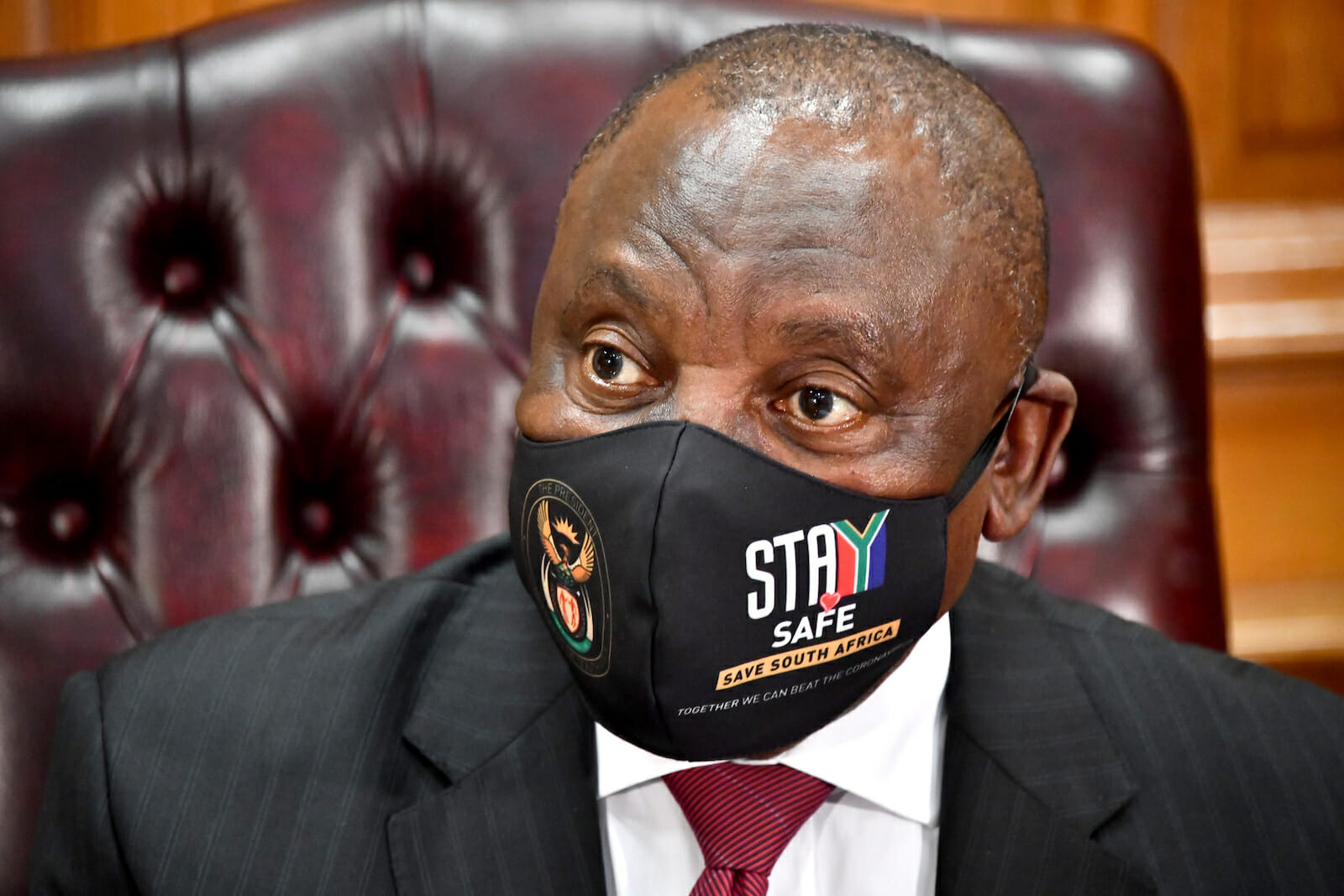
South Africa-IMF Loans Signal Fiscal Struggles to Come for COVID-era Africa
Africa has thus far escaped the worst of COVID-19, but its governments are already feeling the financial strain of the global downturn. The IMF’s emergency aid to South Africa, approved late last month in response to a yawning deficit, is likely a sign of further interventions to come as African states – whose financial stability is often fragile even under normal circumstances – struggle to make ends meet.
South Africa applied to the IMF for funding through its Rapid Financing Instrument, designed to support countries struggling with sudden crises such as the economic fallout from the COVID-19 pandemic. The IMF approved a $4.3 billion loan at only 1.1% interest, with the first repayment due in 2023.
Approaching the IMF marks a decided break in the policy of South Africa’s ruling ANC government, which has avoided turning to the Fund since gaining power in 1994. However, because South Africa’s loan via the Rapid Financing Instrument is not tied to major policy actions or structural conditions, the urgency of the situation likely swayed political opinion in its favour. If South Africa finds itself obliged to return to the IMF for further assistance, the terms are unlikely to be as generous, and the lender is likely to insist on significant structural changes.
Growing calls for reform
The country is unquestionably staring at a fiscal crisis, which greatly limits its options for financing. South Africa’s economy is expected to contract by 7% this year as the country combats the fallout from the COVID-19 pandemic. The government has also indicated that the budget deficit is likely to increase to 15% of GDP – the largest in the country’s history. Considering South Africa’s economic troubles, and its recent downgrade by credit agencies such as Fitch, the country remains unappealing to foreign investors. Analysts are also unconvinced local debt markets would be able to finance the government’s need for cash.
South Africa is, of course, not alone on the continent in dealing with both a fiscal crisis and the pandemic. As African budgets struggle to handle the pressure, governments are going to face ever greater calls to diversify their revenue streams – without putting the onus on the average population – and a crackdown on graft, waste, and opacity in key economic sectors. Civil society groups and the international development community have been pushing for such reforms for years, as a stable tax base is indispensable to consistent political and economic growth.
Low tax revenues and unmanageable debt
This is no easy task. According to the OECD, government revenues average around 17% of GDP in sub-Saharan Africa, compared to an average of 34.2% in the OECD region. Tax systems in Africa are still largely underdeveloped, and the capacity of the government to collect income is limited. Worryingly, over the last decade, non-tax revenues, including royalties from natural resources, have seen a steep decline across most of the continent, offsetting small increases in tax receipts. In addition, many African economies rely heavily on taxes from goods and services – accounting for nearly half of total tax revenues across the region. With the public purse so heavily reliant on specific levies, African economies have made themselves vulnerable to graft and wastage.
Another pressing issue is the problem of debt. African governments are now having to make hard choices between paying off foreign creditors or spending on healthcare during the coronavirus crisis. Any attempt to kickstart ailing economies through economic stimulus measures is hamstrung by existing financial obligations to creditors. Since 2010, public debt in sub-Saharan Africa has risen from 40% of GDP to 59% in 2018, and a significant number of African countries are at high risk of debt distress. Declining tax revenue streams mean the debt crisis is likely to escalate further.
Technological solutions for fighting fraud
In fairness, some countries have been proactive in addressing tax shortfalls, leveraging new technologies to enhance governance when it comes to key sectors of the economy. For example, Mozambique – another beneficiary of emergency IMF aid this year – has earned plaudits for its investment in a fuel tracking system that has significantly cut down on fraud and downstream oil theft, a vital issue in a country whose economic future is largely pegged to offshore energy projects.
Fuel marking has had real success in exposing efforts to dilute fuels, and the laundering of untaxed fuel into legitimate supply, both in Mozambique and in other parts of East Africa. Unlike the dyes sometimes used to change the color of products like agricultural diesel, molecular markers allow authorities to identify intrusions or adulterations in the supply chain. In 2007, as much as 78% of the fuel sold in Tanzania was adulterated; by 2019, this had reduced to 4%, resulting in revenue increases of hundreds of millions of dollars. Both Zambia and Uganda have enjoyed similar success, with Uganda publicly naming and shaming non-compliant fuel stations.
Fuel fraud, including the smuggling and theft of petrol, costs the continent nearly $100 billion each year and deprives struggling public coffers of much-needed tax revenue. Mozambique’s example has led other countries to follow suit, notably Botswana, which loses as much as $2.45 million because of undeclared fuel each year. In October last year, the Botswana Energy Regulations Authority began a tender for the manufacture of the necessary technology. If successfully managed, the process could see Botswana gain much-needed tax revenue, while decreasing corruption and graft.
Pieces of a broader puzzle
These successful ‘tactical’ responses, however, need to fit within a coherent global strategy for the efficient, transparent, and accountable collection and spending of taxes. Much as in Europe and North America, the current crisis is exposing deep-seated inequalities and failures of governance that long predate the virus. In doing so, however, it is also offering an opportunity to tackle them head-on.
In South Africa, for example, highly paid office workers have largely been able to continue earning an income while working from home. Children in private schools have continued their education online. In contrast, those in low-paying and precarious work have lost their jobs and income, or have been forced to continue using crowded public transport networks, risking infection. In order to navigate both a fiscal and health crisis, the country desperately needs an economic strategy that will address its historic inequalities while also solidifying the state’s fiscal foundations. The current crisis is an opportunity to do both.

